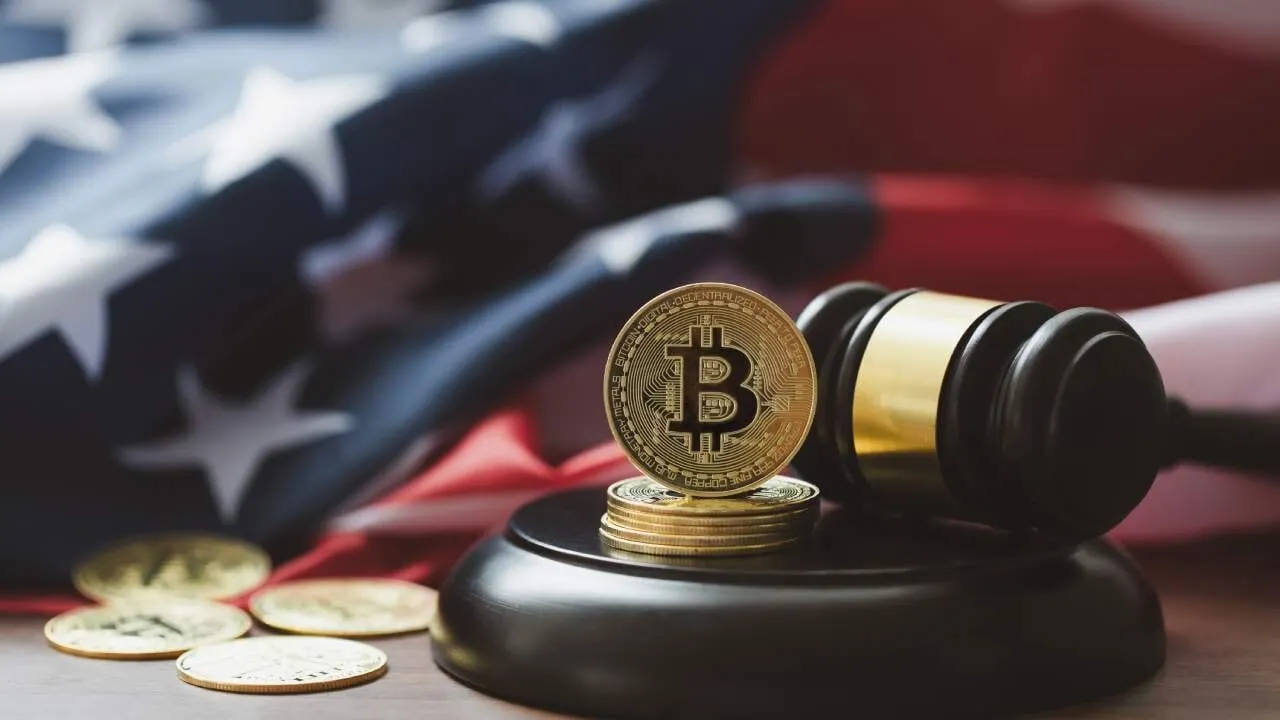Some state-level Bitcoin reserve proposals across the U.S. have hit roadblocks, after multiple states rejected bills to invest public funds in the leading crypto.
Of the 50 U.S. states, over half have introduced or are considering legislation related to Bitcoin reserves or investments in digital assets, but the fate of many of these bills remains uncertain.
Some have made it over the line, establishing the framework for state crypto reserved, but others have already fallen short. Here’s a look at how such bills have failed thus far.
Arizona
Arizona got its “Arizona Strategic Bitcoin Reserve Act,” or SB 1025, all the way to the desk of Governor Katie Hobbs—but ultimately came up short of the finish line when Hobbs vetoed the bill in early May.
If passed, the bill would have allowed Arizona’s state treasurers to allocate up to 10% of state funds into Bitcoin and other coins. In a letter to Arizona Senate President Warren Petersen, Hobbs wrote, “Arizonan’s retirement funds are not the place for the state to try untested investments like virtual currency.”
Despite the blow to crypto proponents hoping for a state strategic reserve, a separate bill was ultimately passed and signed into law just days later. It allows Arizona to create a reserve fund with any unclaimed digital asset funds, matching the current legislation on financial products like traditional equities in the state.
Florida
In early May, the Sunshine State postponed and withdrew from consideration a pair of bills that would have added Bitcoin to its state treasury.
Bills HB 487 and SB 550 sought to allocate up to 10% of select public funds to the top crypto asset, with the former adding any taxes and fees paid in Bitcoin to the general reserve it would have created.
Neither bill made it to the floor of Florida’s House or Senate, as they were pulled at the conclusion of the legislative session on May 3.
Oklahoma
Oklahoma’s bid to add a Bitcoin reserve failed on April 16 when its Senate Revenue and Taxation Committee voted 6-5 against HB 1203, the Strategic Bitcoin Reserve Act.
The bill would have allowed the state to invest up to 5% of four separate state funds into Bitcoin or any other digital asset that averaged greater than a $500 billion dollar market cap over the previous year. Only Bitcoin meets that mark, at present.
Despite the vote against the bill, one representative that expected to vote “no” flipped her vote in support on the afternoon of the vote, saying that she had been persuaded by Bitcoin-supporting constituents.
Utah
Though not vetoed or voted down, Utah’s bid for a strategic Bitcoin reserve slid away in March when a provision that would have enabled the state’s creation of a reserve was removed from a blockchain bill.
The Blockchain and Digital Innovations Amendment—HB 2030—passed the Utah Senate 19-7 after the reserve provision was removed, establishing individuals’ rights to operate blockchain nodes, participate in staking, and more. The bill was officially signed by the state’s governor on March 25.
New Mexico
New Mexico’s SB275, which sought to use up to 5% of the state treasury funds to invest in Bitcoin, was tabled after being sent to the Senate Tax, Business and Transportation Committee in early February.
According to a report from SourceNM, the bill’s sponsor, Republican Anthony Thornton, indicated that he would reintroduce the bill in the future.
Montana
Montana’s Bitcoin reserve proposal, House Bill 429, faltered following its introduction in late January. The bill sought to allocate up to $50 million in public funds for Bitcoin, stablecoins, and precious metals.
Despite arguments from Representative Curtis Schomer, who endorsed the bill as a way to diversify state assets and potentially secure higher returns, the proposal failed in a 59-41 vote in the House of Representatives on February 21.
South Dakota
South Dakota’s HB 1202, which proposed allocating up to 10% of the state's public funds into Bitcoin, was rejected by the House Commerce and Energy Committee in a 9-3 vote on February 24.
While Representative Logan Manhart, the bill's sponsor, argued that Bitcoin could preserve value in inflationary environments, Matt Clark, South Dakota’s state investment officer, cautioned against the asset's volatility.
North Dakota
North Dakota’s proposal, HB 1184, which sought to explore the feasibility of a Bitcoin reserve, failed to pass the House with a vote of 57-32.
However, that doesn’t mean the Peace Garden State has completely turned its back on crypto-related initiatives. The Legislative Assembly of North Dakota is still considering a Republican-sponsored resolution that encourages the State Treasurer and State Investment Board to pour select state funds into digital assets and precious metals, Legiscan shows.
That resolution passed a second reading in the North Dakota House and is headed to the State Senate Industry and Business Committee for further consideration, according to state government records.
Pennsylvania
Pennsylvania’s HB 2664 proposed investing up to 10% of the state’s funds in Bitcoin, but was effectively killed.
The Republican-led bill, co-sponsored by Rep. Michael Cabell and Rep. Aaron Kaufer, was first introduced last November. The legislation would have authorized the Pennsylvania State Treasurer to invest in cryptocurrencies, with public funds being poured into those digital assets using a secure custody solution, or invested in exchange-traded products that track the price of digital assets such as Bitcoin.
Wyoming
Wyoming’s bill, introduced in mid-January, was rejected by the state committee on February 6, with just one out of eight lawmakers supporting the initiative, the State of Wyoming Legislature’s records show.
The legislation called for the investment of state funds and permanent funds into Bitcoin. Under the bill, up to 3% of each of the general fund, the permanent Wyoming mineral trust fund, and the permanent land fund may be poured into the largest digital asset by market capitalization.
Moving forward
While New Hampshire was the first state to pass a strategic Bitcoin reserve bill, a handful of others are still circulating the desks of legislators nationwide.
North Carolina passed its Digital Assets Bill through the House, moving it to the Senate for debate at the end of April.
Texas has SB 21, a bill which would allow for a state managed investment fund focused on Bitcoin and other cryptocurrencies, currently left pending in committee, potentially for further discussion before advancing or rejecting the bill.
Other states like Alabama and Minnesota have introduced Bitcoin reserve acts, but remain much further behind in the legislative process.
In total, around 30 bills related to state Bitcoin reserves are still in progress according to data from BitcoinLaws.io.
Additional reporting by Liz Napolitano
Editor's note: This story was originally published on February 27, 2025. It was last updated with additional detail on May 11.


